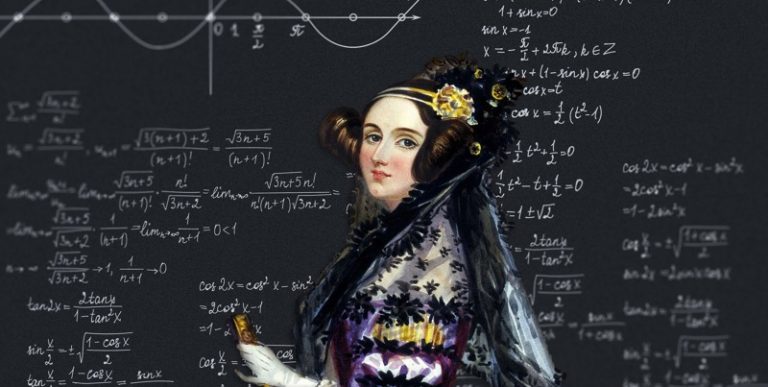
The first conference on the theme of artificial intelligence in fiction (literature, series, films, comic strips, video games, plastic arts) will be held in Paris from 3 to 5 June 2021. During this event, the representations of AI and their meanings will be discussed, as well as the creative uses of AI to produce and understand fiction in text, sound, still and moving images, as well as in video games. A call for papers has been launched and is open until 30 September 2020.
The symposium is organized by Alexandre Gefen (CNRS/Paris 3) in collaboration with Marida di Crosta (Marge, University of Lyon III), Ksenia Ermoshina (CNRS, Centre Internet et Société), Béatrice Joyeux-Prunel (University of Geneva), Léa-Saint-Raymond (ENS).
Call for papers
Road trip entirely written by an Artificial Intelligence embedded in a car, 1 the road by Ross Goodwin joined at the beginning of the 2019 literary season a whole series of texts whose common point was to stage and act out a dream of automation and artificialisation of literary language, whose genealogy goes back at least to the first automatic writings of the Oulipo: artificial intelligence is no longer just a fiction but a tool to produce fiction. Fictions are as much textual as they are pictorial.
Hito Steyerl revisits the narrative power of documentary film using deep learning algorithms to better question its ability to shape reality; Gregory Chatonsky’s Second Earth takes us into a new world whose automatically generated images already tell the story, while by associating two images with a logical connector he shows the power of an algorithm to create a small story (If… then, 2009).
Embodied in figures, familiar, AI now offers incarnations that do not resolve themselves to the apocalyptic horizon of robots waiting for the hour of singularity to triumph over the human species. A.I. is no longer just the object of a fantasy, but is gradually becoming an everyday tool through facial recognition or personal assistants, while the first tools of predictive writing and cultural recommendation are emerging, and it is announced that a story produced by an artificial intelligence has been a finalist for a literary prize in Japan.
We already knew the very rich mythology of AI in cinema, from 2001 The Space Odyssey to Spielberg’s A.I. Artificial Intelligence, via Terminator or Her: each time, the political, ethical and social stakes of AI open up avenues for deep critical reflection and question the most essential philosophical categories by which we think about mankind and our place in the world.
But AI is now taking on a concrete presence: Databiography by Charly Delwart proposes to retrace a destiny based on digital data and their visualisations, Le_zéro_et_le_un.txt by Josselin Bordat tries to stage an artificial intelligence in the process of awakening to the world, Kétamine by Zoé Sagan sets a scene of a “predictive” journalist centred on data: we have never been so close to artificial agents that are integrated into our lives.
By moving from fantasy to computer tools, the fictional representations of AI are thus added to the fictional representations of the emerging uses of narrative AI, opening up a field of opportunity and fear for culture: on the one hand, creation by AI or assisted by AI can offer a major experimental field of interest to conceptual writers as well as scriptwriters, storytelling practitioners, visual artists and performers.
On the other hand, the way in which culture is “dataified” and the way in which these datas are analyzed can profoundly affect the fiction industry and its attention control, further multiplying our perplexity about the emergence of artificial narrative intelligence.
On the agenda
Contributors will be invited to consider one or other of these avenues of reflection:
- examples of fiction produced by AI: tools, projects, applications, games; computer methods used: GAN, machine learning, deep learning; AI fiction: robots, cyborgs, computers;
- the themes of post-humanism, singularity, utopias and dystopias of AI;
- the cultural history of representations of AI and its inventors (Alan Turing, for example);
- criticism produced by AI: audience analysis, scenario analysis, cultural recommendation algorithms;
- the analysis of fiction by AI methods in the field of Digital Humanities;
- the legal problems arising from the creation: law, data sharing, tax regime ;
- the narrative aesthetics of AI, the link with conceptual art and performance literature;
- the transformation of theoretical categories by AI and the modification of the vocabulary of criticism and aesthetic philosophy, from the notion of narrative to that of literature;
- the representation of psychological, ethical and political problems induced by AI, from Asimov’s three laws of robotics to Westworld;
- the philosophical dimension of the fictional reflection on AI: the problem of freedom, conscience, agility, autonomy ;
- AI as a way of questioning the issue of minorities, the theme of vulnerability, the frontiers of humans, the frontier of gender, the frontier of species.
Terms and conditions of contribution
Proposals in English or French (1 page + 1 short bio-bibliography) should be sent to ia.fiction.2021@gmail.com before 30 September 2020.
The conference will take place at the Maison de la recherche de l’Université Paris 3 – Sorbonne nouvelle, Maison de la recherche, 3 rue des Irlandais, 75005 Paris, from 3 to 5 June 2021.
Translated from Appel à contribution pour le premier colloque international sur l’intelligence artificielle dans la fiction









